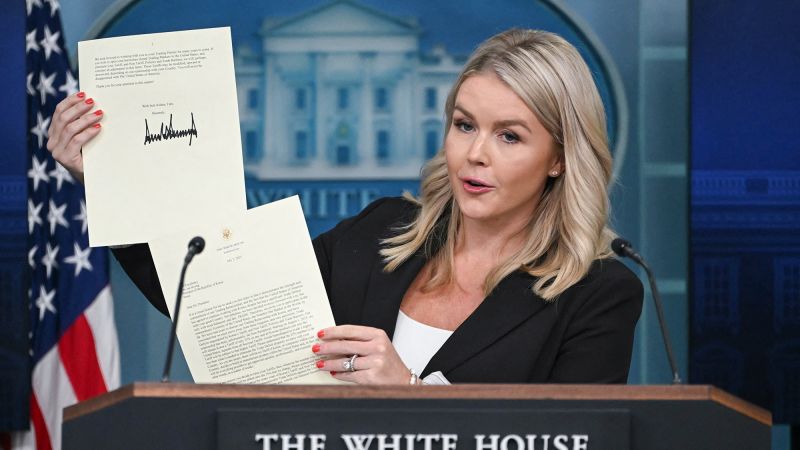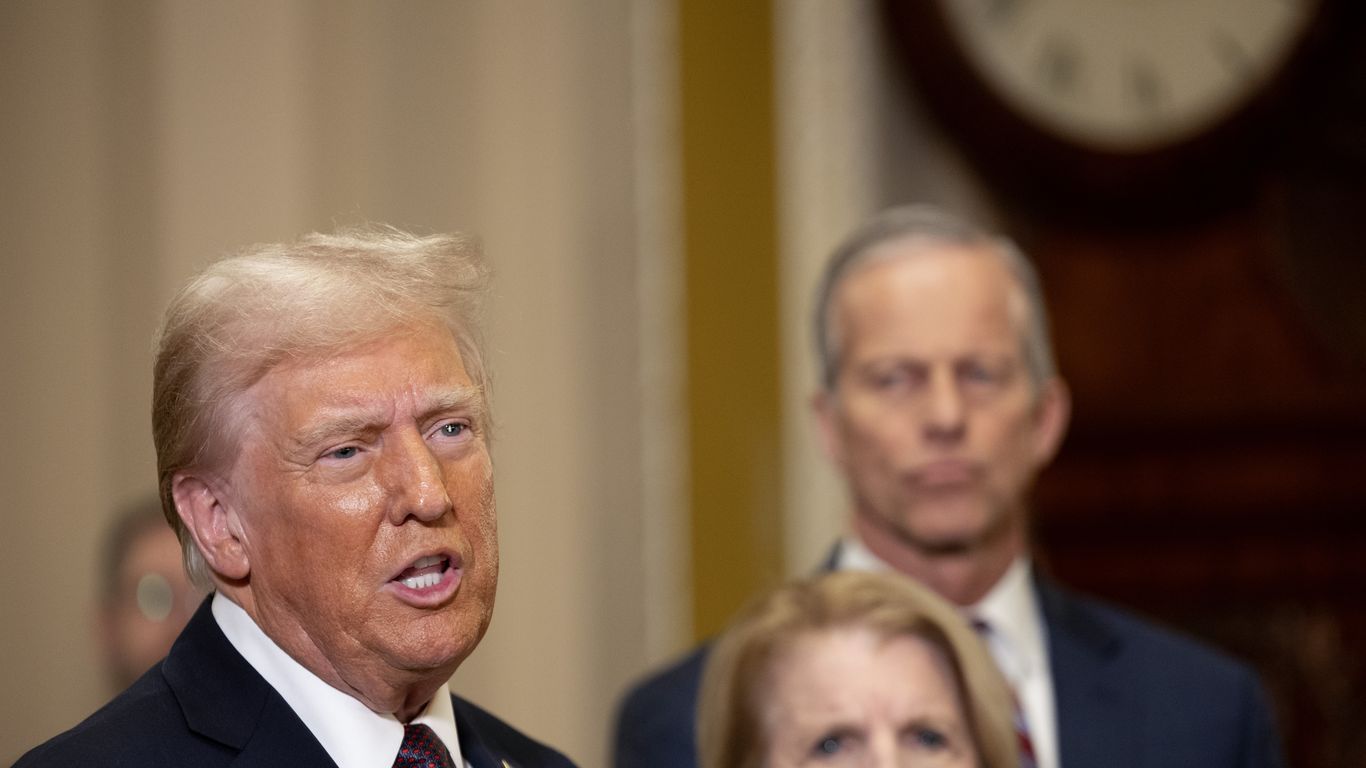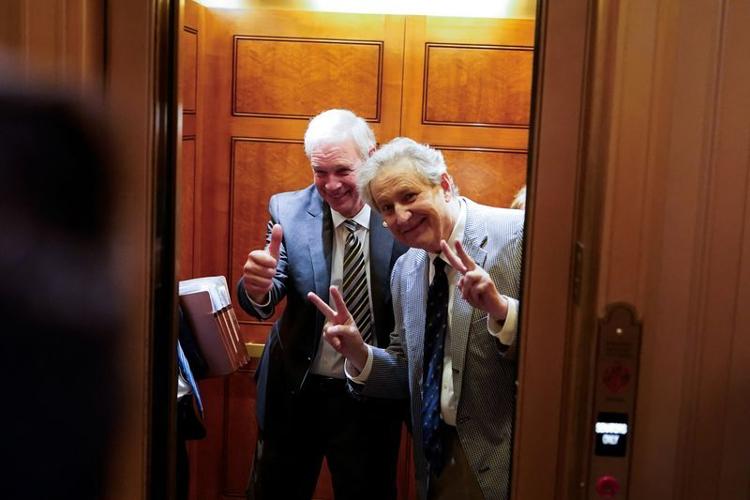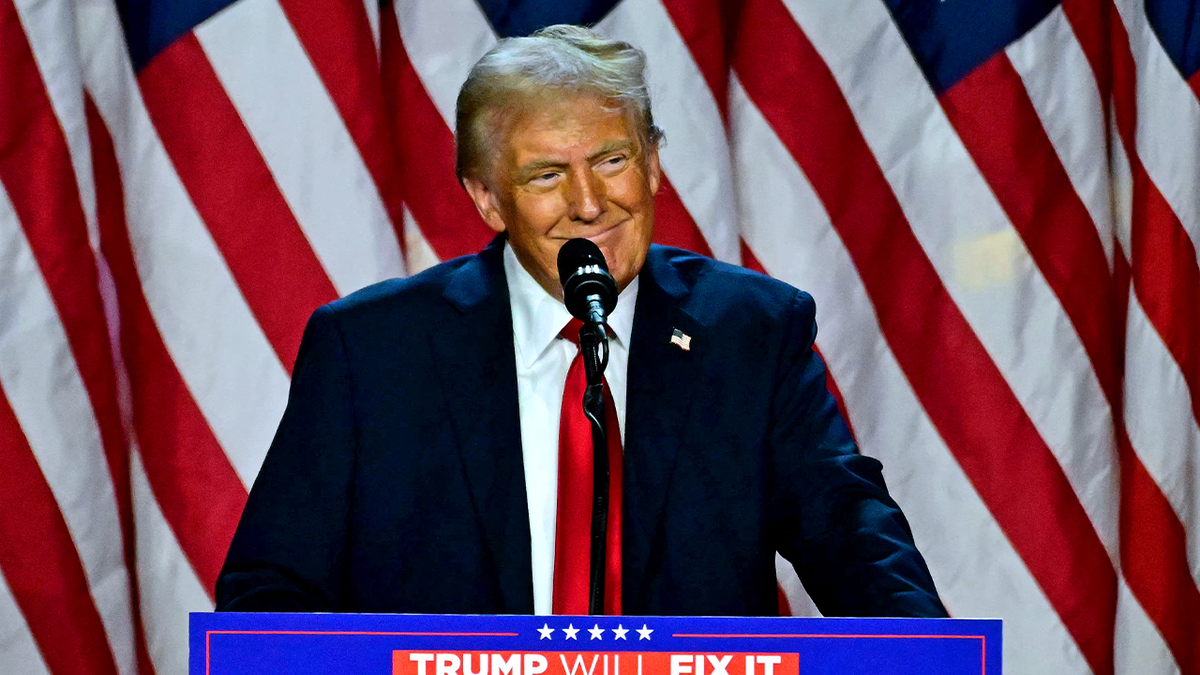Trump Threatens Tariffs on Brazil
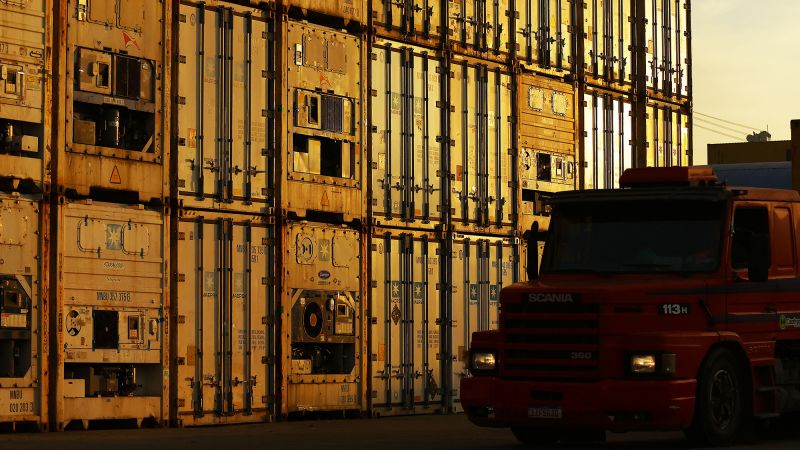
President Trump Threatens 50% Tariffs on Brazil
In response to Brazil's ongoing "witch hunt" trial against President Jair Bolsonaro, President Trump has announced potential tariffs as high as 50% on Brazilian exports to the United States. This threat comes after the U.S. has already imposed tariffs on several other countries, including China, Mexico, and Canada.
The Impact on Global Trading Partners
The letters sent out Wednesday by President Trump have sparked concern among Brazil and other global trading partners. The potential tariffs could have a significant impact on the economy and trade relationships between the U.S. and these countries. Brazil, in particular, is a major exporter of agricultural products to the U.S., making the potential tariffs a cause for concern.
The History of Tariffs Under the Trump Administration
This is not the first time President Trump has threatened or imposed
About the People Mentioned
President Trump
Donald John Trump, born June 14, 1946, in Queens, New York, is an American businessman, media personality, and politician who has served as the 45th and 47th president of the United States. He graduated from the University of Pennsylvania's Wharton School with a degree in economics in 1968 and took over his family’s real estate business in 1971, renaming it the Trump Organization. Over decades, he expanded the company’s holdings into skyscrapers, hotels, casinos, and golf courses, building a high-profile brand often associated with luxury and real estate development. Trump also gained fame as the host of the reality TV show *The Apprentice* from 2004 to 2015[1][3][7]. Trump entered politics as a Republican and won the presidency in 2016, defeating Democrat Hillary Clinton in an unexpected victory. His tenure from 2017 to 2021 was marked by significant policy shifts, including tightening immigration controls, imposing a travel ban on several Muslim-majority countries, expanding the U.S.–Mexico border wall, rolling back environmental regulations, implementing major tax cuts, and appointing three Supreme Court justices. His foreign policy included withdrawing the U.S. from international agreements on climate change and Iran’s nuclear program, and initiating a trade war with China. Trump's handling of the COVID-19 pandemic was widely criticized for downplaying the virus's severity. After losing the 2020 election to Joe Biden, he challenged the results, culminating in the January 6, 2021, Capitol attack. Trump was impeached twice but acquitted both times by the Senate[1][2]. In a historic political comeback, Trump was re-elected and inaugurated for a second non-consecutive term on January 20, 2025, becoming the oldest president to assume office at age 78. He remains a highly influential and polarizing figure in American politics[2][7]. Trump is married to Melania Trump, with whom he has one son, Barron, and has four adult children from previous marriages. He has authored several books, including *The Art of the Deal*, a business bestseller[3][5][7].
Jair Bolsonaro
Jair Messias Bolsonaro, born on March 21, 1955, in Glicério, São Paulo, Brazil, is a Brazilian politician and former military officer who served as the 38th president of Brazil from 2019 to 2023. He began his career in the Brazilian Army in 1973 and graduated from the Military Academy of Agulhas Negras in 1977. After leaving the military, Bolsonaro entered politics, serving as a member of the Chamber of Deputies representing Rio de Janeiro from 1991 until his presidential election in 2018[1][2][6]. Bolsonaro is known for his right-wing nationalist and populist positions, with strong support for conservative social policies and admiration for Brazil’s former military dictatorship (1964–1985). His presidency marked a shift from over a decade of leftist leadership, emphasizing pro-market economic policies, agricultural development, and deregulation, often at the expense of environmental protections, particularly in the Amazon rainforest. His handling of the COVID-19 pandemic was widely criticized for downplaying the virus’s severity[2][3]. During the 2018 presidential campaign, Bolsonaro survived a stabbing attack that required emergency surgery but continued his campaign successfully, winning the runoff election against Fernando Haddad. He narrowly lost re-election in 2022, obtaining about 49% of the vote[3][6]. Following his 2022 election defeat, Bolsonaro was implicated in efforts to undermine Brazil’s democratic institutions. In September 2025, the Supreme Federal Court convicted him for planning a military coup attempt, sentencing him to over 27 years in prison[1][6]. Despite controversies and legal troubles, Bolsonaro remains a significant figure in Brazilian politics with a dedicated conservative base. His presidency and post-presidential events reflect ongoing political polarization in Brazil[1][2][3][6].
About the Organizations Mentioned
United States
The **United States** is a federal republic and a global superpower, playing a leading role in economics, military strength, technology, and governance. It is a nation of approximately 348 million people as of 2025, characterized by its diverse population and dynamic economy[8][6]. Founded in 1776 following independence from British rule, the U.S. rapidly evolved into a major world power, especially after World War II, when its technological and economic investments solidified its global dominance[4]. Today, it remains the world’s preeminent military power, with 76% of Americans recognizing this status, while about half view it as the leading economic power globally, though China is seen as a rising competitor[2][3]. The U.S. government operates through a complex system that manages federal finances, taxation, social welfare programs, and trade policies. Recent legislative changes, such as the 2017 Tax Cuts and Jobs Act and the 2025 One Big Beautiful Bill Act, have shaped the tax landscape to influence economic growth, labor markets, and federal revenue[1]. Despite challenges like rising federal deficits projected to reach 6.9% of GDP by 2027, consumer spending remains resilient, and business investment is expected to grow steadily in 2025[5]. In governance, the U.S. is rated "Free" with a score of 84/100 by Freedom House, though concerns about democratic erosion and partisan conflicts persist[6]. Public trust and satisfaction with government services fluctuate, reflecting ongoing debates about policy effectiveness and institutional competence[7]. Technologically, the U.S. maintains a critical edge, underpinning its economic and geopolitical power. Experts warn, however, that technological dominance is not guaranteed indefinitely, emphasizing the need for adaptive policies and international cooperation to sustain leadership in innovation and global affairs[4]. Overall, the United States remains a pivotal force in global business, technology, and politics, balancing historic strengths with contemporary challenges in
Brazil
Brazil is a sovereign country and the largest economy in South America, ranking as the tenth-largest economy globally and second-largest in the Western Hemisphere with a GDP of approximately $2.19 trillion in 2024[5][8]. It operates as a multiparty federal republic with a population of about 206 million in 2025, projected to reach 224 million by 2030[1]. The capital is Brasília, and the official language is Portuguese. Historically, Brazil's vast and diverse geography, encompassing rivers, wetlands, mountains, and plateaus, has shaped its complex economic and cultural landscape[1]. The country is a major global player in agriculture, mining, energy, and manufacturing, with São Paulo serving as its financial and business hub[5]. Economically, Brazil has experienced fluctuating growth rates. After a strong rebound in early 2025 with a 5.7% annualized GDP growth in Q1, the economy faced a slowdown due to rising inflation, higher interest rates, and currency devaluation, leading to a contraction in subsequent months[2][4]. Forecasts for 2025 GDP growth range from 1.6% to 2.4%, influenced by monetary tightening and fiscal challenges, although household consumption remains a primary growth driver[3][6][7]. Inflation is expected to moderate but stay above the central bank's target in the near term[3][6][7]. Brazil maintains a robust commercial relationship with the United States, its second-largest trading partner, and has a diversified domestic market that values technology and international products, especially from the U.S.[5]. Recent tax reforms aim to simplify the complex regulatory environment, enhancing export potential. Notably, Brazil's political system is a vibrant democracy with competitive elections and active public debate, despite polarization[9]. The country faces ongoing fiscal and structural challenges but continues to play a pivotal role in regional and global economic and technological developments.
China
China is not an organization but a sovereign nation and the world’s second-largest economy, playing a pivotal role in global business and technology. Since initiating economic reforms in 1978, China has transformed from a largely agrarian society into an upper-middle-income country with an average GDP growth of over 9 percent per year for decades, lifting nearly 800 million people out of poverty[2]. The country’s economic model initially focused on investment and export-oriented manufacturing but is now shifting towards higher-value services, domestic consumption, and low-carbon growth to address social, environmental, and structural challenges[2]. China’s government heavily directs industrial policy, promoting domestic innovation and technological self-reliance through plans like “Made in China 2025” and the 14th Five Year Plan (2021-2025). These initiatives target advanced technology sectors such as robotics, aerospace, new energy vehicles, biopharmaceuticals, and high-tech manufacturing, aiming to replace foreign technologies with domestic alternatives and expand China’s global market presence[3]. This industrial strategy combines state subsidies, preferential policies, and strict market access controls for foreign firms, shaping a competitive environment favoring national champions[3]. Despite solid economic growth—real GDP grew by 5.4% year-on-year in early 2025—China faces headwinds including demographic shifts, slowing productivity, a cooling property market, and global trade uncertainties. Growth is projected to moderate to around 4.5% in 2025 and 4.0% in 2026, with fiscal stimulus helping to offset some challenges[1][3][6]. Externally, China remains a major global exporter, with exports outpacing GDP growth in 2025[6]. Notably, China’s governance under President Xi Jinping has tightened control over civil society, media, and minority regions, drawing international scrutiny for human rights issues and repression, especially of Uyghurs and Tibetans[4][9]. Meanwhile, Chin
Mexico
**Introduction to Mexico as a Country and Economy** Mexico is not an organization but a country, and it plays a significant role in global business and technology. With a population of nearly 130 million, Mexico is one of the largest economies in the world and the second largest in Latin America[1]. The country is known for its rich cultural heritage, diverse geography, and abundant natural resources. **History and Economic Overview** Historically, Mexico's economy has grown at an average annual rate of just over 2% between 1980 and 2022, which is relatively slow compared to other emerging economies[1]. Despite this, Mexico has a strong manufacturing base and is integrated into global value chains, particularly in the automotive and electronics sectors. **Key Achievements and Current Status** - **Economic Growth**: Despite recent challenges, Mexico's economy surprised with a 1.8% growth in the first half of 2025, driven by export growth and a resilient services sector[2]. However, the outlook remains cautious due to anticipated trade policy shifts and economic slowdown in the U.S.[1][2]. - **Poverty Reduction**: The official multidimensional poverty rate has decreased from 43.2% in 2016 to 36.3% in 2022, driven by labor market improvements and increased remittances[1][5]. - **Challenges**: Mexico faces significant challenges, including high income inequality, a low tax-to-GDP ratio, and a struggling energy sector[5][2]. **Notable Aspects** - **Investment Climate**: The government aims to reduce the fiscal deficit, which could impact investment decisions[6]. Constitutional changes and regulatory uncertainties have eroded trust in foreign investment[3]. - **Technology and Innovation**: Mexico has opportunities for growth in technology and innovation, particularly in sectors like IT services and renewable energy, though it faces challenges in infrastructure and regulatory environments. Overall, Mexico presents a complex economic landscape with both opportunities and challenges
Canada
**Introduction to Canada** Canada is not an organization but a country known for its vast economic and natural resources. It is the ninth-largest economy globally, with a highly developed mixed economy that is deeply integrated into the global trade system[6]. Here's a summary of Canada's key aspects relevant to business and technology: ## History and Role Canada has a long history of economic development, with significant contributions to global trade and finance. It is a founding member of the World Bank Group and has played a crucial role in international development initiatives[8]. ## Key Achievements - **Economic Contributions**: Canada is one of the world's largest trading nations, with strong trade relationships, particularly with the United States[6]. - **Innovation and Competitiveness**: It ranks high in the Global Competitiveness Report and Global Innovation Indexes, indicating its strong capabilities in innovation and business[6]. - **Multilateral Engagement**: Canada has been a strong proponent of multilateralism, supporting global development goals through its membership in the World Bank Group[8]. ## Current Status - **Economic Challenges**: Canada faces challenges such as rising tariffs with the U.S., weak productivity, and high household debt, which impact its economic growth[2][4]. - **Population Growth**: The country has experienced rapid population growth, driven largely by immigration, which has both bolstered labor input and strained housing affordability[9]. - **Resilience**: Despite these challenges, Canada's economy remains resilient, with a strong policy framework supporting macroeconomic stability[2]. ## Notable Aspects - **Trade Relations**: The U.S. is Canada's largest trading partner, with significant trade in goods and services[6]. - **Innovation and Technology**: Canada is home to vibrant tech hubs, such as Toronto and Vancouver, and supports innovation through various government initiatives. - **Global Influence**: Canada plays a significant role in international forums, promoting sustainable development and economic cooperation[8].
